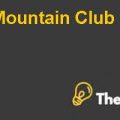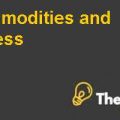
Problem Statement
The H.J. Heinz Company case basically relates to the April 1979 findings of an inappropriate income transferal practices which had been used frequently at the organization. This case contains the comprehensive background data related to the organization, along with an in depth explanation of the company’s internal practices, the overall corporate ethical policy and the management incentive system which is followed in the organization.
Introduction
H.J. Heinz Company was established back in the year 1896 in Pittsburgh. H.J. Heinz Company was founded by Mr. Henry J. Heinz with a vision of bringing the similar standards for canned foods that were generated in the homes. He additionally aimed to provide the best quality food with exceptional quality, so that people can enjoy it by appreciating his efforts in a real optimistic manner. In the early 1960s H.J. The Heinz Company faces a lethargic period, which was for sure an unfavorable period and as a consequence a restructuring was commenced to re-position H.J. Heinz Company for aggressive growth in a professional manner. Under the leadership of James Cunningham and John Bailey, Heinz flourished through a vital economic downturn, major currency fluctuations and government price controls.
Heinz has been a multinational company whose domestic operations have accounted for a sale of 62% and the earning have been 675. In the early part of the 1970s, the Heinz major focus was to constantly grow its earnings. As the case states, Heinz management was not considering acquisition because of the continuous growth. However, Heinz was looking to purchase all the various opportunities in areas where Heinz could demonstrate its capabilities. The company also emphasized on profit increase by eliminating all products that were less profitable. Along with this, the sales for the company was increased through effective marking ofrather more profitable brands. Heinz was committed in making the organizational structure as a decentralized authority.
The company’s association with the food products certainly not altered, and back in the year 1979 Heinz was successfully able to operate around 30 companies with an exceptional extended market reach and products were reaching to different 150 countries. In the fiscal year 1978, H.J. Heinz Company crosses the net income of $ 99.1 million and sales of over $2.2 billion. The annual report of the financial year 1978 replicated management’s superiority in H.J. Heinz Company quiet extraordinarily reliable growth. The 1978 fiscal year was quite good and went towards the books as the 15th successive year of the best ever results for H.J. Heinz Company. The overall earnings had risen to tremendous heights. Sales statistics crossed the gigantic figure of more than $2 billion within the least span of time that is only six years after H.J. Heinz Company had passed the figure of around $1 billion spot for the very first time in its exceptionally long history.
Discussion
H.J. Heinz Company has been doing an exceptional job, especially after 1970s. Back in the year 1979 Mr. James was working as the chief operating officer and president of the H.J. The Heinz Company came to know that some divisions of the company were apparently involved in the inappropriate income transferal practices. The element which needs to be given extra importance is that the payments which had been done to some particular vendors in a certain fiscal year were noted in the next fiscal year.
H.J. The Heinz Company division was largely independent and considered as separate companies on operational basis. The division head was entirely responsible for its division operation and was equally accountable for all the actions and decision making. H.J. Heinz Company sounds quiet, organized in terms of having a formal reporting structure. The staff of the certain division reports to its division manager. The company had an exceptional management incentive plan which was designed by one of the finest management consulting firm. It was basically a tool that is implemented to accomplish several important corporate goals.
The management incentive plan is helpful in keeping employee motivated if executed properly. H.J. Heinz Company’s management incentive plan had the key performance indicator and profit not on the basis of performance, which meant that employee had to exploit the profits in any given way in order to get a higher bonus from the Management incentive plan. This will certainly lead employees to find a way to control and positively influence revenues and expenses of the company in return, it will cause financial statement to lose its fair value. Organization structure helps the organization to increase profit and employee motivation.....................
This is just a sample partial case solution. Please place the order on the website to order your own originally done case solution.
Opening in April 1979 refers incorrectly income transfer methods used in the HJ Heinz Co. background information on the company is presented, along with a detailed description of organizational practices, management incentive and corporate ethical policy, to use. Also contains an organizational structure and financial data for the financial year 1972-78. "Hide
by Kenneth E. Goodpaster, Richard J. Post Source: Harvard Business School 6 pages. Publication Date: 01 Oct 1981. Prod. #: 382034-PDF-ENG













